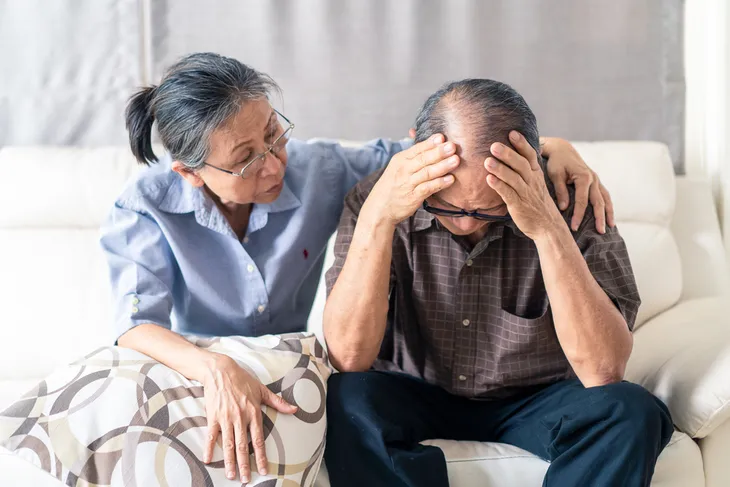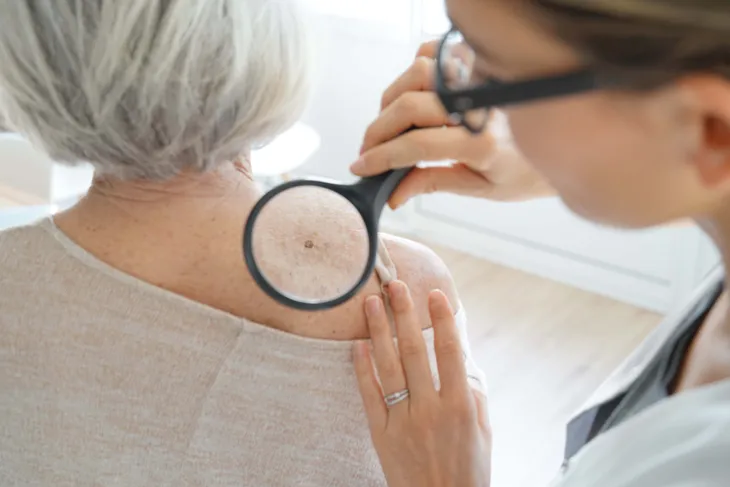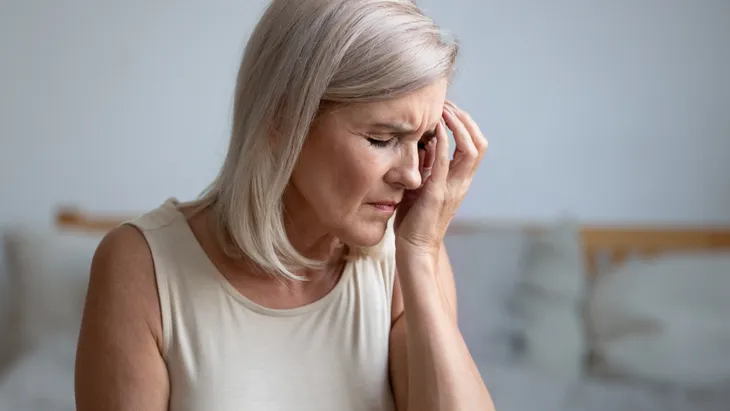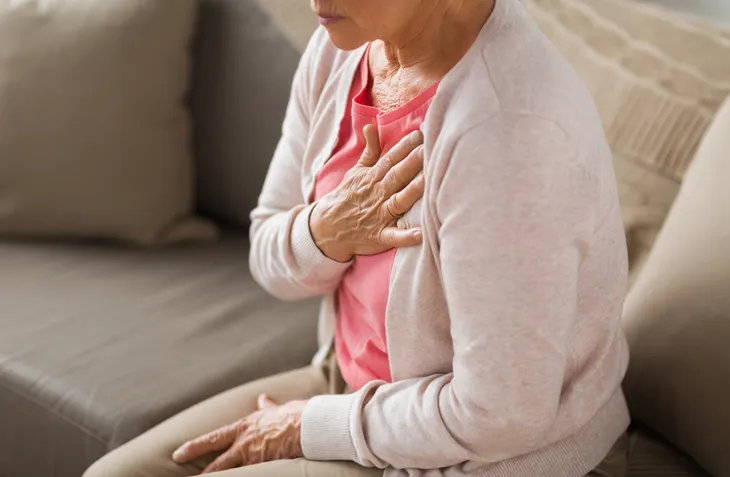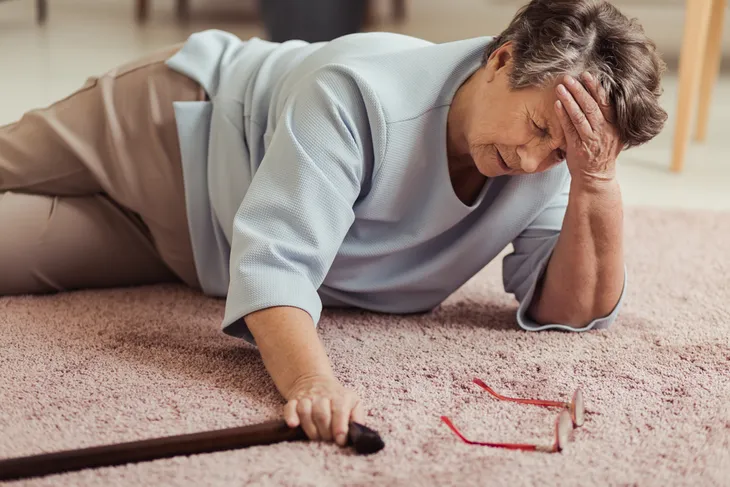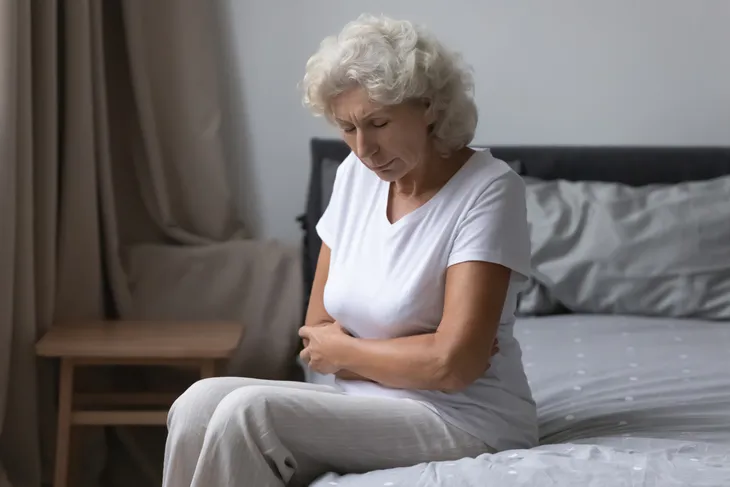It’s normal to experience changes as you get older which is why it’s easy to ignore unusual symptoms. That said some symptoms should never be ignored. In fact, some physical symptoms can be a sign of a more serious health condition which is why you should discuss sudden changes with your doctor.
Seeking medical attention is essential for diagnosing serious health problems early. Not only will this help you determine the cause and a treatment plan, but it may also help prevent long-term complications. Here are 10 physical symptoms seniors should never ignore.
Sudden Confusion or Memory Loss
According to the National Institute on Aging, “Forgetfulness can be a normal part of aging.” It’s normal to misplace your glasses or forget which word to use on occasion. That said, sudden confusion or changes in your memory is not normal and could mean there is a serious underlying issue.
Sudden confusion or memory loss could indicate dehydration, anoxia (loss of oxygen supply to your body or brain), brain tumor, a reaction to a medication, urinary tract infection, thyroid problems, or other infections. The good news is that many of these conditions are treatable, but make sure you don’t ignore these symptoms and see a doctor straight away.
Abnormal Skin Lesions
Be wary of abnormal skin lesions and moles. If any skin lesions ooze, cause you pain, or don’t heal, may be cancerous. Other symptoms of cancerous skin lesions include dark, irregular borders, flat with a crusted surface, a pearly or waxy bump, or a brown scar-like appearance.
It’s important to examine your skin regularly and don’t forget to think about the ABCDE’s when examining:
- Asymmetry meaning one half is different from the appearance of the other.
- Border irregularly meaning the edges around the lesion are notched, blurred, or ragged.
- Color meaning you should inspect the color and be on the lookout for uniform pigmentation.
- Diameter meaning the size is greater than 6mm (1/4-inch).
- Evolution meaning is there a change in size, shape, surface, color, or symptoms?
Shortness of Breath
Shortness of breath can have you feeling like you just climbed several flights of stairs or performed a workout. Ultimately, you may feel like you’re struggling to draw a full breath. While it isn’t always a sign of a severe illness, this symptom should never be ignored.
Shortness of breath can sometimes be an early sign of partial (or complete) blockage of an artery. This can cause a heart attack. Make sure you speak with your doctor immediately if you are experiencing unusual or chronic shortness of breath. And make sure you seek emergency care if you also feel dizzy and pressure and/or tightness in your chest.
Sudden Eye Pain
Sudden eye pain is not a normal part of aging and this symptom should not be ignored. Eye pain can be caused by a few things including a blocked blood vessel and internal bleeding. It can also be caused by acute glaucoma which is a series of eye conditions that is caused by pressure in the eye.
Furthermore, eye pain could also be an early sign of shingles which is a viral infection. If you’re experiencing sudden eye pain make sure you seek medical attention immediately.
Sudden Chest Pain
If you experience any type of chest pain, you should speak with your doctor immediately. Chest pain can be a sign of something non-serious such as a muscle strain but it can also be a symptom of something more serious. This includes a collapsed lung, pneumonia, or a heart attack.
It’s important to note, the early signs of a heart attack aren’t always obvious and that’s why it’s important to recognize heart attack signs and symptoms. This includes dull or heavy pressure on your chest or sudden chest pain, dizziness, shortness of breath, fatigue, and more. Play it safe and seek medical attention if you’re experiencing any type of chest pain.
Sudden Struggle With Speech or Balance
If you are suddenly struggling with your speech or find yourself suddenly off-balance, seek emergency care right away. These symptoms should not be ignored because they could be a sign of a stroke.
Other symptoms of a stroke include slurring words, confusion, extreme dizziness, change in vision, and numbness or weakness in your legs, arms, or face. Getting medical attention as soon as possible may help prevent complications.
Constipation
Experiencing constipation occasionally is normal. It’s also more common after age 50. That said, you shouldn’t ignore constipation as it may be a sign that something such as a tumor, polyp, or any other obstruction, is blocking the stool.
Constipation can cause you to strain and in time, could cause the development of hemorrhoids. Furthermore, continuous constipation could also lead to fecal impaction. The good news is that treatment can help this condition. Play it safe, and don’t ignore the signs of constipation.
Blood in Stool
When it comes to bowel movements, constipation isn’t the only symptom you shouldn’t ignore. You should also be on the lookout for blood in your stool. If you notice this, don’t ignore it, and speak with your doctor as soon as possible.
Blood in the stool can appear red or black. A black color suggests that there is bleeding in the upper gastrointestinal (GI) tract while red-colored stool suggests the bleeding is in the lower GI tract. Your doctor will be able to determine whether you have ulcers, hemorrhoids, diverticulitis, or any other GI conditions.
Symptoms of Depression
Physical symptoms aren’t the only thing you need to be on the lookout for. You should also be on the lookout for emotional changes too. Never ignore the signs and symptoms of depression. These include feelings of worthlessness, irritability or restlessness, fatigue, loss of appetite, crying spells, and feeling withdrawn from usual activities.
Further, seniors can be at greater risk for depression due to feelings of loss and loneliness. If you experience any signs or symptoms of depression make sure you seek help from your doctor or mental health professional. Without the proper treatment, the symptoms of depression can worsen.
Severe Abdominal Pain
It can be normal to experience stomach upset every once in a while but you shouldn’t ignore severe abdominal pain. Especially if the pain happens suddenly.
Make sure you call your doctor immediately if the abdominal pain is so uncomfortable that you can’t sit still in a comfortable position or if moving causes more pain. You should also seek medical attention immediately if the pain is associated with fever, bloody stool, nausea or vomiting, yellowing skin, severe tenderness when you touch your abdomen or swelling in the abdomen.
The causes can range from minor conditions to serious medical emergencies. Some of these include appendicitis, kidney stone, urinary tract infection (UTI), heart attack, and more. When in doubt speak with your doctor to determine the cause.

